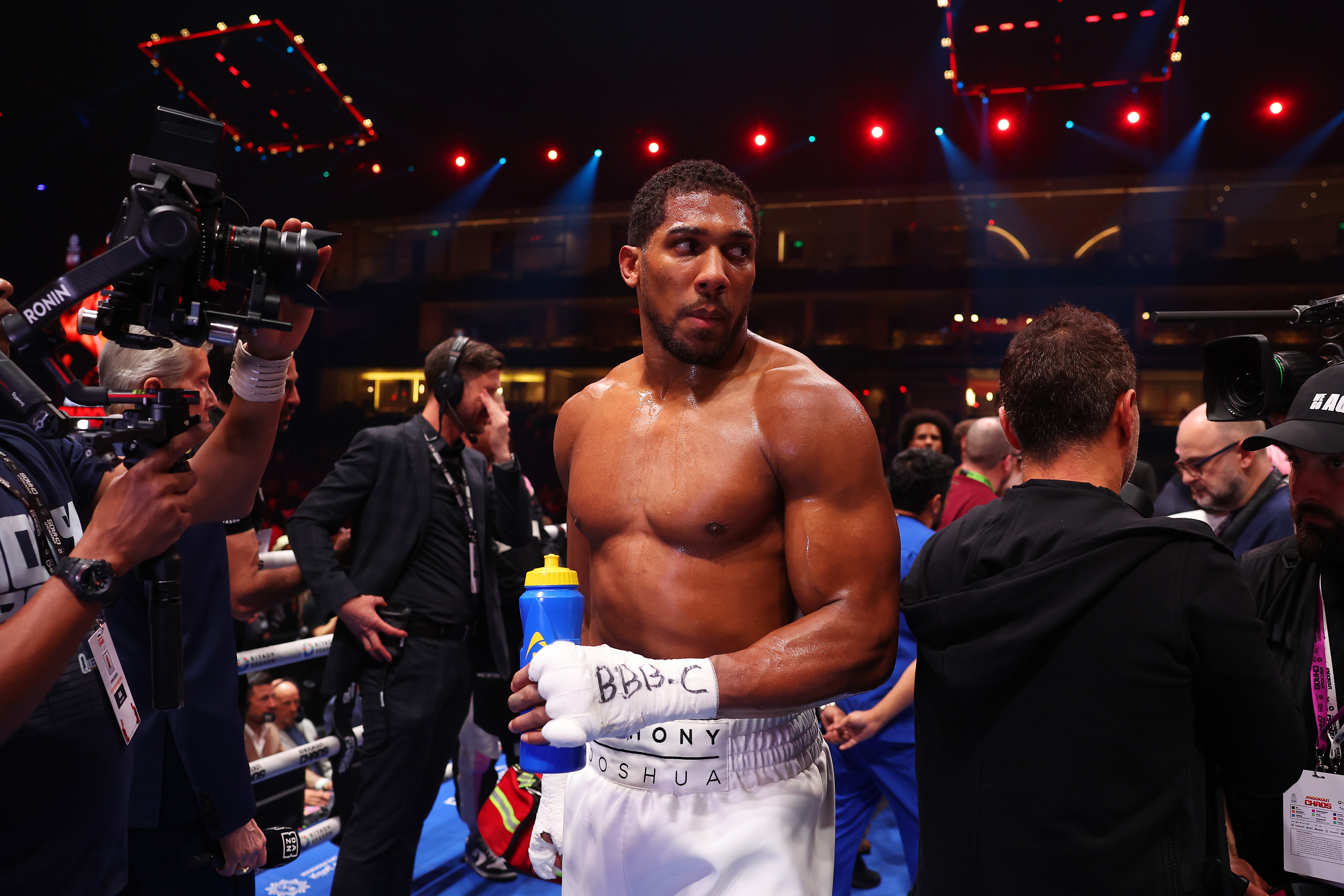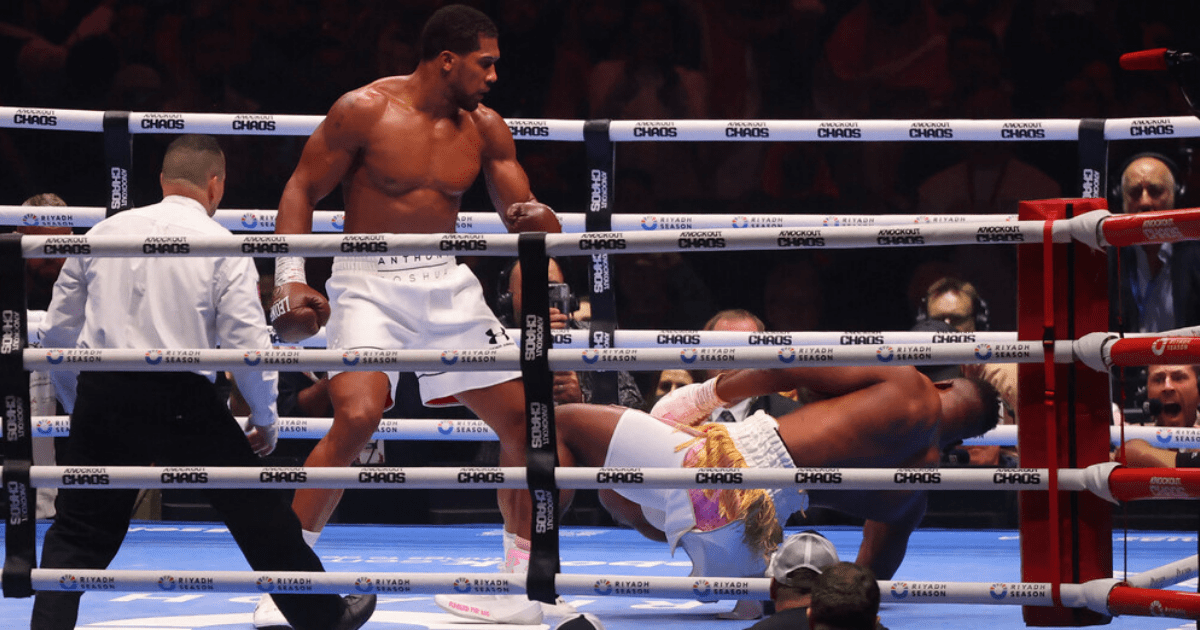Showing Respect
British boxer Anthony Joshua received praise from fans for his sportsmanship after knocking out Francis Ngannou in their recent bout in Saudi Arabia. Rather than celebrating immediately, Joshua waited until Ngannou was back on his feet before showing his respect.
Post-Fight Interaction
Once Ngannou was able to stand, Joshua approached him, shook his hand, and encouraged him not to leave boxing. This gesture was well-received by fans and showcased Joshua's humility and class.
Ngannou's Response
Ngannou, who is signed to the PFL, may return to MMA for his next fight. After a recent win, he called out Ngannou for a potential match, expressing his readiness to face top competition.
Ngannou's Message
Following his loss, Ngannou took to social media to thank his supporters and acknowledge that it was not his day. He remains positive and grateful for the love he has received.

Frequently Asked Questions
Can boxing improve mental well-being?
Boxing improves mental health in many ways. It reduces stress, boosts mood, increases self-esteem, promotes discipline, and provides a sense accomplishment. The mental focus needed during training can act as a kind of meditation. This helps to improve your concentration and clarity.
What are basic boxing strikes?
The fundamental punches in boxing include the jab, which is a quick, straight punch thrown with your lead hand; the cross, a powerful straight punch delivered with your rear hand; the hook, a semi-circular punch aimed at the side of your opponent’s head or body; and the uppercut, an upward strike aimed at the underside of your opponent’s chin or body.
How often should an amateur boxer train?
Beginners can aim for between two and three boxing workouts per week. They should allow enough time to recover in between sessions. As you acclimate to the sport and improve your fitness, you may gradually increase the frequency and intensity of your training.
How important is recovery for boxing training?
In boxing, recovery is crucial as it helps your body heal and become stronger. A nutritious diet, proper rest, stretching and adequate sleep are all essential for recovery. Ignoring the recovery process can lead to injuries, overtraining, and decreased performance.
Statistics
- It is estimated that 60% of beginner boxers do not use the correct size gloves, which can increase the risk of injury.
- Research indicates that nearly 70% of punches thrown by boxers during a match are jabs.
- On average, beginners who undergo proper boxing training can expect to burn anywhere from 300 to 500 calories per hour.
- Nearly 80% of boxing training injuries are related to incorrect technique, especially within the first three months of taking up the sport.
- Approximately 50% of beginner boxers drop out within the first six months, highlighting the importance of sustaining motivation and setting realistic goals.
- Beginner boxers tend to make the mistake of holding their breath in 70% of cases during their initial training sessions.
- About 25% of people who take up boxing transition to competitive amateur boxing within their first two years of training.
- Nearly 95% of boxing trainers agree that mental conditioning is just as important as physical training for beginners in the sport.
- Around 90% of boxers suffer a minor injury over the course of a year, with only 10-15% experiencing a moderate to severe injury.
- Studies suggest that about 30% of beginner boxers tend to neglect the importance of footwork in their initial training phase.
External Links
boxingforlife.com
precisionstriking.com
menshealth.com
titleboxing.com
proboxing-fans.com
liveabout.com
commandoboxing.com
joinfightcamp.com
sneakpunch.com
globalfightcenter.com
How To
How to Choose the Right Boxing Gloves for Beginners
It is important to choose the right boxing gloves for both your safety and comfort. As a beginner, opt for gloves that provide ample padding, typically between 12oz to 16oz, to protect your hands and wrists during bag work and sparring. Look for gloves made of durable leather or synthetic materials with a secure wrist closure. Make sure they fit snugly when hand wraps are on. They should not be so tight as to cut off circulation, nor so loose that the gloves move during training.

